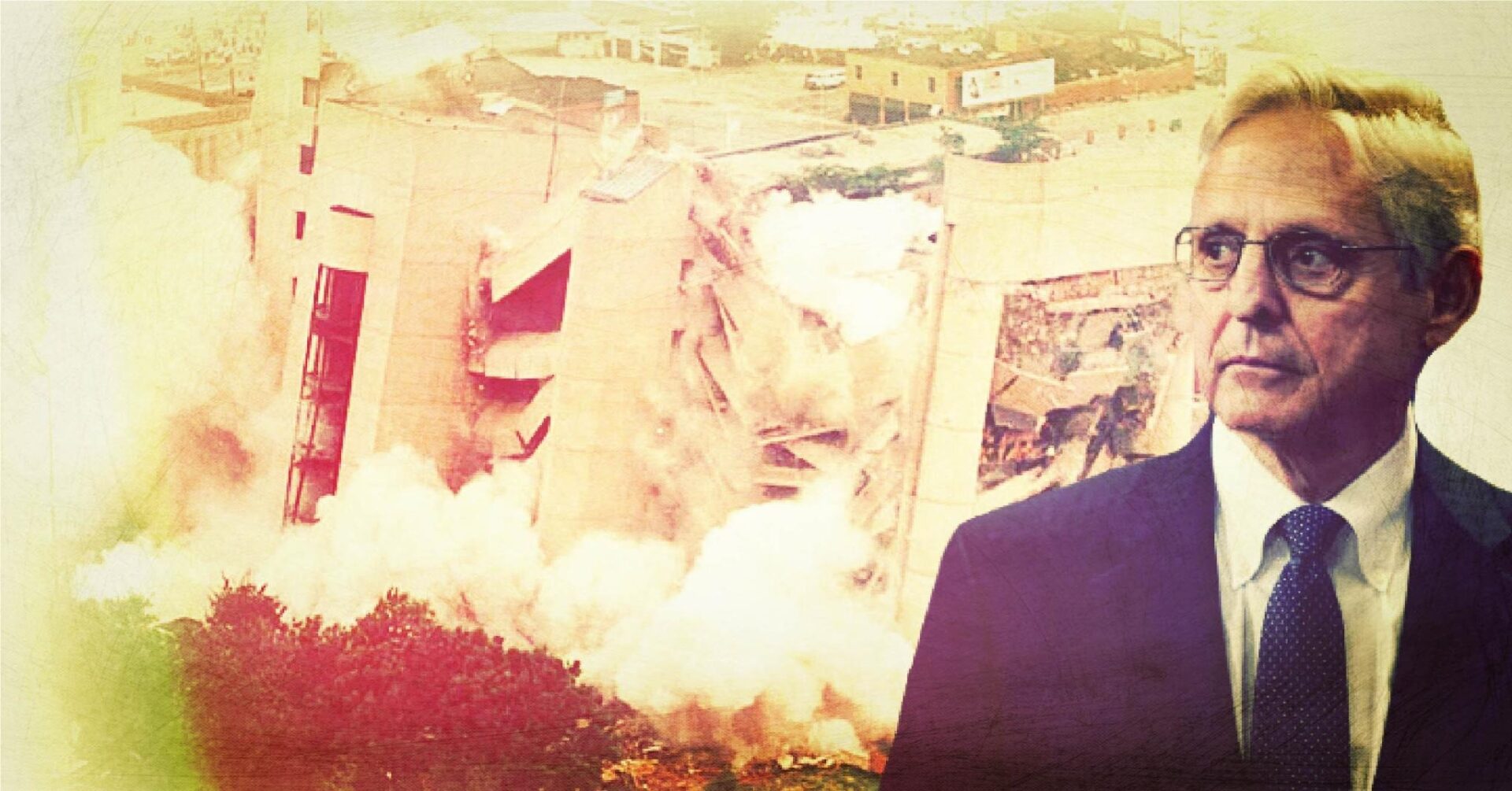
Well, well, well... CNN (inadvertently?) resurrects gruesome skeleton from Merrick Garland's closet... - Revolver News
Has the unraveling of the Fedsurrection narrative opened the door to a much overdue reassessment of what really happened in Oklahoma City?
 www.revolver.news
www.revolver.news
There’s the old joke that a “gaffe” is when a politician accidentally tells the truth. In a similar vein, we might say that a “limited hangout” is when the media accidentally tells the truth, or otherwise draws attention to a deeply subversive and forbidden topic.
There are few topics darker and more uncomfortable than the full account of the Oklahoma City Bombing. For a long time, many in the know believed that the American people simply couldn’t handle some of the disturbing questions that arise when one scrutinizes the dubious official account of that tragic day in America’s history — at the time, the worst terror attack on American soil.
For a primer, we invite readers to consult the documentary “A Noble Lie.” We don’t vouch for everything in the documentary, but it is as good a place to start as any:
One of the many gruesome aspects of the Oklahoma City Bombing saga is the tale of Terrance Yeakey, a police officer and first responder to the OKC attack, who died under very mysterious circumstances — a likely case of an American hero who was “suicided” for knowing too much.
Discussion of the OKC bombing in a critical context, and especially discussion of the dark and mysterious fate of Terrance Yeakey, has long been relegated to the underground realms of the alternative media — those alleys where you may find completely crazy information, but you also just might find the truth (which may also happen to be crazy). But then something strange happened—CNN of all places did a long profile of Terrance Yeakey that at least entertains the idea that he was murdered as part of a larger cover-up of the truth of OKC.
This story is about one of those people. His name was Terry Yeakey. He was an Oklahoma City police officer and a military veteran. Yeakey saved at least three people from the ruins of the Alfred P. Murrah Federal Building on April 19, 1995, the day a terrorist attack killed 168 people and injured hundreds of others.
Something happened to Yeakey in those hours in the wreckage. He was badly shaken, and his worldview seemed to change. In time, he grew suspicious and afraid. He ran afoul of his supervisors. He went on secret missions, withholding his motives and plans from fellow officers. He seemed to be conducting his own investigation.
And then, 385 days after the bombing, his body was found near some trees in a field off a country road.
His wrists were cut.
His neck was cut.
He’d been shot through the head.
The CNN report is, astonishingly, actually a proper work of investigative journalism. It has numerous accounts that contradict and call into question the ridiculous official narrative that Yeakey committed suicide:The authorities said it was suicide. But among those who knew Terry Yeakey, not many believed he had killed himself.
In a recent interview, his sister Lashon Hargrove said this:
“I think they murdered Terry because he knew too much.”
[CNN]
Brandon Spann, now an administrative assistant at the Canadian County Sheriff’s Office, played basketball with Yeakey and knew many of the same people Yeakey knew. He said that in the Black community of El Reno, a town northwest of Oklahoma City where Yeakey grew up, the official story never took hold.
“No one believed that he killed himself,” Spann said.
Three of Yeakey’s fellow Oklahoma City police officers also shared their doubts in interviews with CNN.
Jim Ramsey won a medal for bravery on the day of the bombing and had previously patrolled the streets with Yeakey. Here’s how he responded in late 2022 when asked if he believed what the authorities said about Yeakey’s death.
“No,” Ramsey said. “I guess I don’t.”
“I still don’t believe Terry did it,” said Steve Vassar, one of Yeakey’s closest friends on the force. “I have just a hard time believing that Terry would take his life.”
Don Browning served the Oklahoma City PD for 28 years and helped with Yeakey’s initial police training. Here’s what Browning said about Yeakey:
“I still think he was murdered.”
They found blood in Yeakey’s car. But no autopsy was conducted on his body
A CNN investigation found several anomalies surrounding Yeakey’s death, along with a lack of transparency by the authorities.
Although Yeakey apparently died from a gunshot wound to the head, no autopsy was performed. Medical examiners can sometimes choose not to perform an autopsy when suicide is suspected and the cause of death is not in dispute, according to Dr. Joyce deJong, president of the National Association of Medical Examiners. But three former law-enforcement officials familiar with the Yeakey case said they thought an autopsy should have been done.
When asked why there was no autopsy on Yeakey, an Oklahoma City Police Department spokesman, Master Sgt. Gary Knight, referred a reporter to the state medical examiner’s office, whose director of operations, Kari Learned, wrote, “Our office does not answer case specific questions.”

